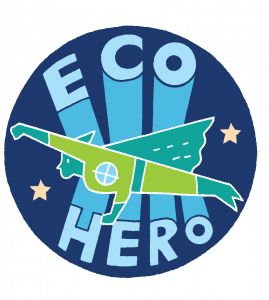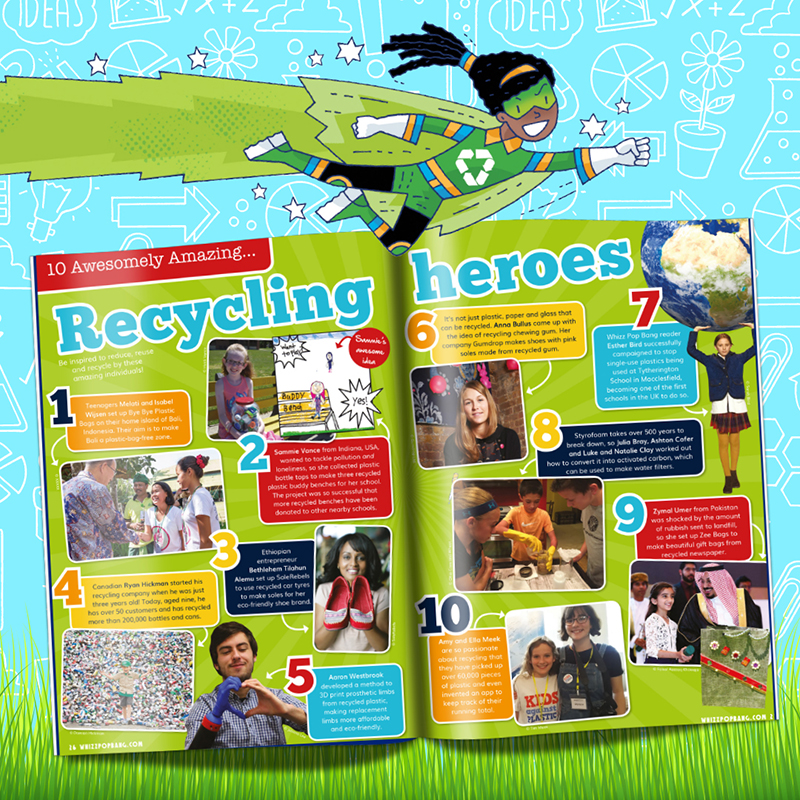
As an educational magazine focusing on science, we take our environmental responsibility very seriously. We’re a small independent publisher, which means we have control at each stage of the process – from design to production, through to distribution. We don’t sell to newsstands, high street shops or supermarkets, so we never sell on a sale or return basis (where often, only the cover would be returned and the rest of the magazine is destroyed). Extra copies are held in stock here at WPB HQ, to be sold as back issues. We sometimes receive magazines from the printers which have been slightly damaged in transit, so we donate these to breakfast clubs in deprived areas and hospices for children who are too poorly to go to school.
Every month we report on environmental issues in the news, highlighting eco heroes and how children and their families can help reduce their environmental impact. We have a regular feature called Emmi’s Eco Club, exploring environmental issues in a fun and creative way, encouraging our young readers to be proactive in reducing, re-using and recycling. We are also very careful about the items required for our experiments, which will be inexpensive, household items. For example, we suggest using alternatives to plastic straws and encourage people to buy eco balloons.
Whizz Pop Bang magazines are printed in the UK, using only paper from FSC/PEFC certified suppliers. Our magazines are delivered in paper envelopes, which can be recycled.
Are you looking for ways to help your children learn more about how they can be more environmentally friendly? Read on!
We’re huge fans of Kids Against Plastic, a campaign set-up by sisters Amy and Ella Meek, aged 15 and 13. These two are amazing, their drive and determination to change people’s behaviour is so inspiring!
“Not long ago we came across the UN’s Global Goals and got inspired to do our bit for the planet, and after finding out about the negative effect single-use plastic is having on the environment, we launched the Kids Against Plastic campaign.”
- Raise awareness and understanding of the problems caused by plastic misuse
- Encourage and support others to become ‘Plastic Clever’ and reduce single-use plastics
- Empower children and young people to believe they can make a difference
Follow Amy and Ella and find out what they’re doing to help us reduce our reliance on single-use plastics.



